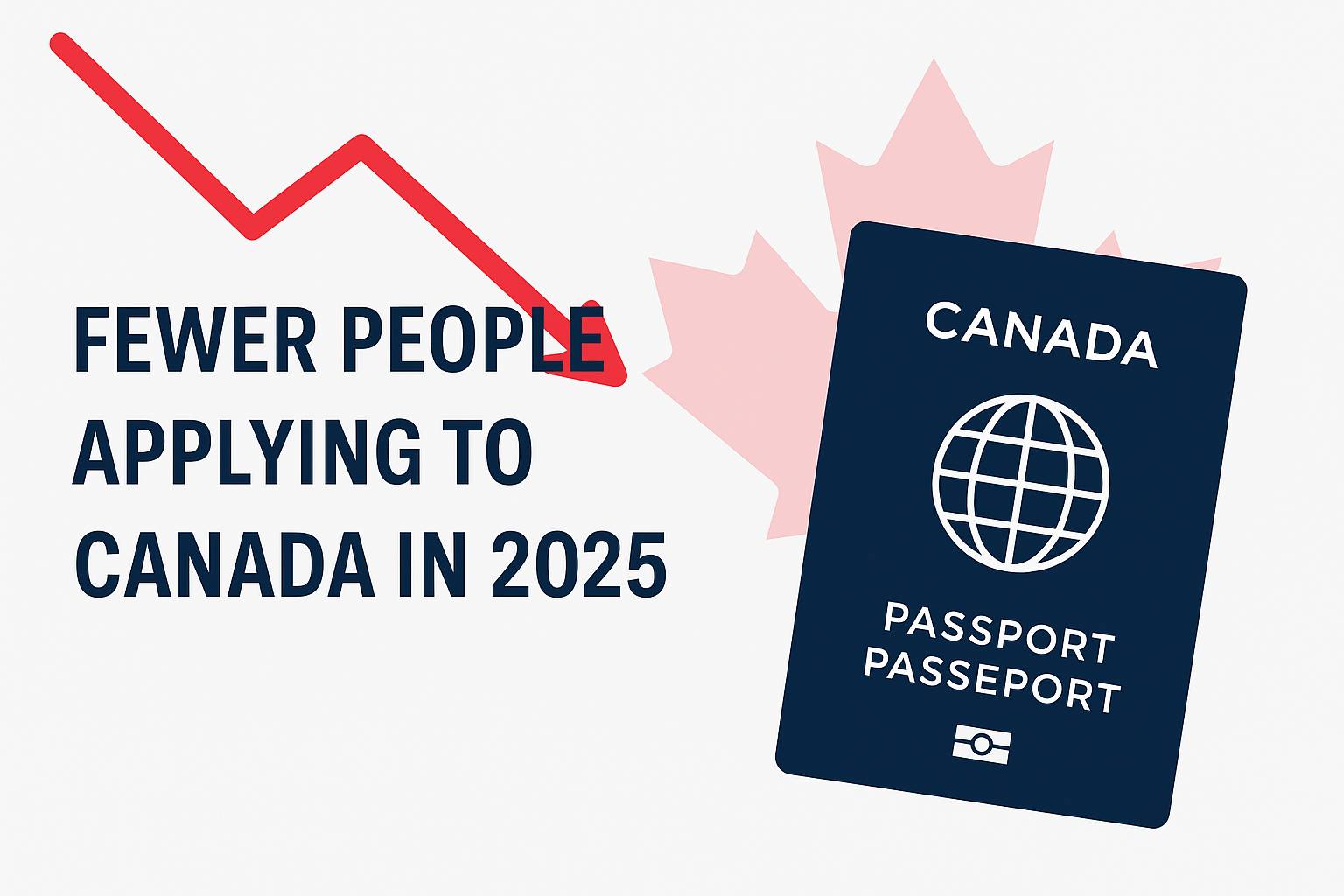Canada has long been one of the most sought-after destinations for international students, skilled workers, and visitors. However, recent trends show a significant decline in the number of people applying to come to Canada in 2025 compared to the same period in 2024.
This drop is visible across visitor visas, work permits, and study permits, signaling changing dynamics in Canadian immigration. At the same time, there is strong growth in applications for extensions from individuals already in Canada who want to remain longer.
Decline in New Applications
Comparing intake from early 2024 to early 2025 reveals a sharp decrease in new applications across temporary resident categories:
- Visitor Visas (Temporary Resident Visas): Applications have dropped dramatically, showing reduced demand from travelers and family visitors.
- Study Permits: Applications are down by more than one-quarter, reflecting a slowdown in international student interest and increased challenges in meeting new requirements.
- Work Permits: Overall intake is also lower, indicating that fewer foreign nationals are initiating applications to work in Canada.
This overall decline may be linked to changing policies, stricter requirements, global economic uncertainty, and competition from other countries.
Surge in Extensions from People Already in Canada
While fewer people are applying from abroad, the opposite trend is happening inside Canada—more people are choosing to extend their status:
- Work Permit Extensions under the Temporary Foreign Worker Program (TFWP): Extensions have surged dramatically. Employers are turning more to LMIA-based routes to fill labour gaps.
- Work Permit Extensions under the International Mobility Program (IMP): These are down, showing fewer LMIA-exempt renewals.
- Study Permit Extensions: Increased by double digits, as students already in Canada choose to continue studying or transition to other pathways.
- Visitor Record Extensions: These have declined slightly, suggesting fewer temporary residents are prolonging their visits.
Why This Matters for Applicants
If you are planning to apply in 2025, here’s what these numbers mean for you:
- Competition remains strong: Even with fewer applications, demand for limited spots continues to create pressure on approval rates.
- Extensions are critical: For those already in Canada, extending your status has become an important way to maintain legal residence while planning long-term goals.
- Employers need to adapt: With more reliance on LMIA-based hires under the TFWP, employers must prepare for compliance and additional documentation.
VM Immigration’s Perspective
At VM Immigration Services, we understand that these shifts can be confusing. Our team helps clients by:
- Preparing strong, compliant applications for visitor visas, study permits, and work permits.
- Assisting international students with study permit extensions and pathways to permanent residence.
- Supporting employers with Labour Market Impact Assessments (LMIAs) and TFWP requirements.
- Advising workers and families on the best strategies to maintain or extend their status in Canada.
The trend is clear: fewer new applications are being filed, but extensions are rising. This means Canada is currently seeing more people choosing to stay longer rather than come for the first time.
If you are planning to study, work, or visit Canada in 2025, it is more important than ever to submit a well-prepared application or ensure your extensions are handled professionally. With the right guidance, you can still achieve your Canadian goals despite changing trends.
📞 Book a consultation with VM Immigration Services today to secure your best pathway forward.

